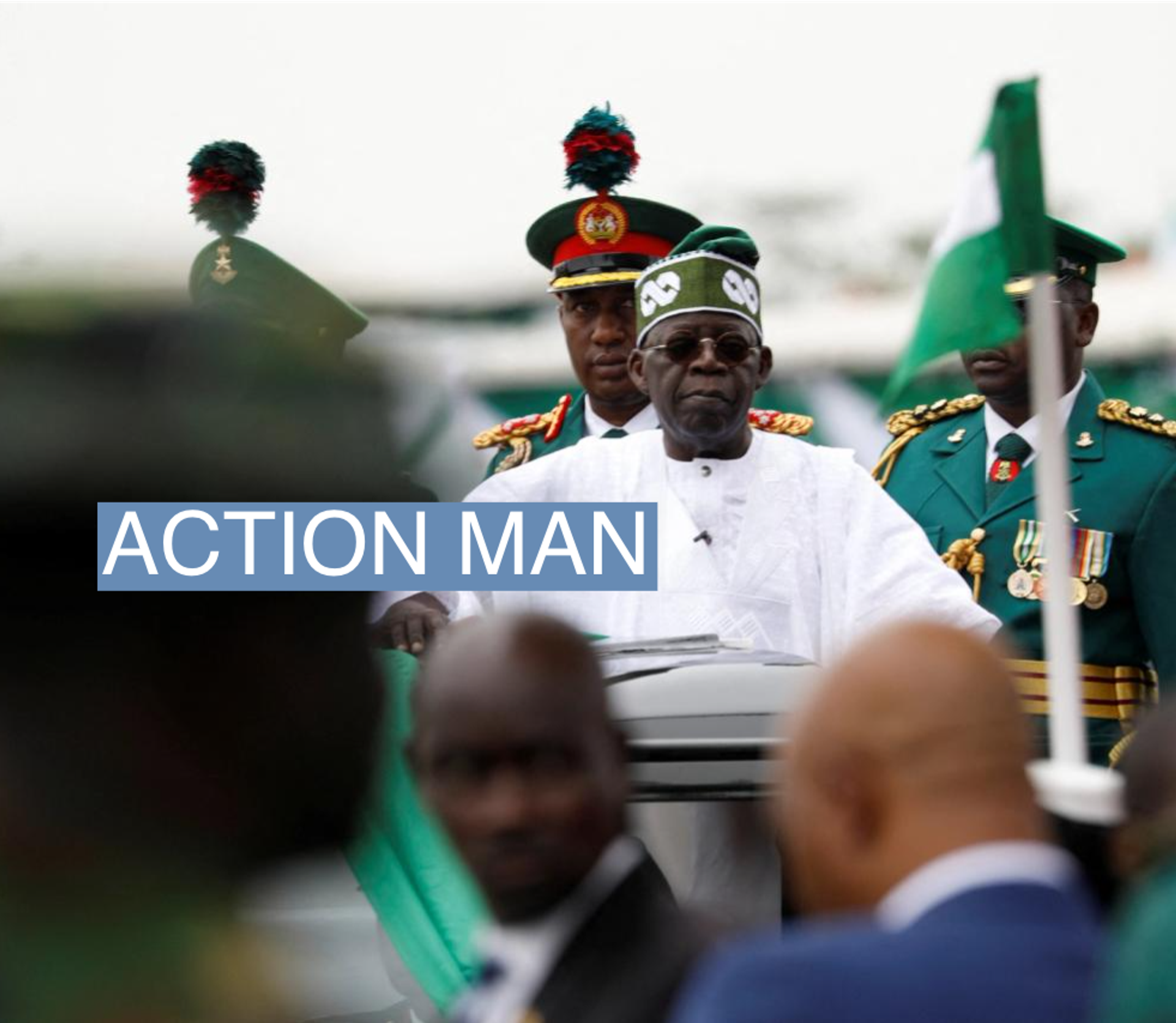The News
Nigeria’s new president Bola Tinubu implemented market-friendly reforms in his first two weeks in office in a bid to overhaul Africa’s biggest economy and attract investment — despite the risk that angry citizens could derail his plans.
The central bank on Wednesday allowed the naira to trade freely against the dollar, prompting its official value to plummet by nearly 40% as it moves towards a single exchange rate. It marked the end of multiple, tightly controlled exchange rates championed by its governor of the last nine years, Godwin Emefiele. Tinubu suspended Emefiele last Friday and the following day security agents confirmed he had been arrested and held in custody for “investigative reasons.”
Tinubu made his intentions clear in his inaugural address on May 29 when he said Nigeria’s monetary policy needed “thorough house cleaning,” adding: “The central bank must work towards a unified exchange rate. This will direct funds away from arbitrage into meaningful investment in the plant, equipment and jobs that power the real economy.”
During that address, he also announced the scrapping of a fuel subsidy that cost the country $10 billion in 2022. Days later the state oil company said petrol prices will adjust “in line with current market realities,” which sparked long petrol lines as the cost of fuel doubled.
Know More
In the last week, Tinubu has also signed laws to overhaul the power sector and provide student loans.
The power legislation, signed into law on Friday, allows Nigeria’s 36 state governments to license and regulate electricity markets within their jurisdiction. Electricity regulation was previously controlled by the federal government.
A bill signed on Monday creates a fund to provide interest-free loans to university students. In his manifesto, Tinubu promised to introduce a student loan programme to “expand access to education to all Nigerians.”
Alexis’s view
Tinubu has begun his presidency with big, bold policy moves that clearly mark an ideological break from the past and could boost foreign investment into Africa’s biggest economy. The central thread that connects Tinubu’s policy changes is a seemingly unwavering faith in supply and demand to dictate the value of the currency and the price of petrol.
“The power reforms could be revolutionary for electricity supply in Nigeria,” Fola Fagbule, a director at multilateral lender Africa Finance Corporation told me. He said devolving certain responsibilities for electricity to state governors frees them up to innovate to attract investment. Poor power provision has long held back the development of Nigeria’s economy.
Exchange rate reforms are significant because they appeal to investors who stayed away due to the statist policies of his predecessor, Muhammadu Buhari. The byzantine web of exchange rates and tight currency controls created confusion and made it hard for foreign businesses to repatriate their profits. We got a sense of investor sentiment on Monday when Nigeria’s international bonds surged in the wake of Emefiele’s suspension.
But there are potential pitfalls. The huge price rises for petrol could stoke inflation. Pieter Scribante, political economist at advisory firm Oxford Economics Africa, summed up the risks when he told me: “Tinubu needs to get the buy-in from ordinary Nigerians, who will disproportionately feel the impact of these policies.” He pointed out “this will be challenging given that Tinubu received a meager 36.6% of the vote during the election — the lowest voter support level of any Nigerian president.”
The last attempt to remove the subsidy, 11 years ago, was reversed after widespread protests. That hasn’t been repeated — probably because its removal was well-signaled — although major labor unions nearly called a nationwide strike.
If unleashing market forces causes a steep rise in the cost of living, as many economists predict, Tinubu will be forced to consider what he needs more: the backing of international investors or his citizens.
Room for Disagreement
Ikemesit Effiong, head of research at Lagos based political risk consultancy SBM Intelligence, argued that Tinubu’s approach has been driven by the economic malaise Tinubu inherited from Buhari rather than a particular economic vision. “In terms of policy, there isn’t a lot of economic wiggle room,” said Effiong, referring to issues such as the removal of the petrol subsidy and allowing the naira to float freely.
“It really was a matter of if, and not when. He really had no choice.”
The View From Lagos
At a petrol station in the Surulere district of Lagos, Wasiu Olagunju feared that the pump price will keep rising despite Tinubu’s assurances that they will stabilize in the long term.
“Our experience is that we always end up feeling that past governments were better than the current one. My fear is that may be the case again this time,” said the 55-year-old who runs a chairs and tables rental business and now charges customers for transporting the items to their venues. He introduced the change to adapt to new realities.
In a wooden shack opposite the petrol station, 40-year-old Edith Pius, who sells rice and stew, complained customer numbers had dropped since the petrol price increase, even as costs of ingredients have soared. She hasn’t raised prices for fear of losing customers to nearby competition but increased the minimum order on some items. “I no longer sell 100 naira rice (21 cents), it’s now from 200, except for school children,” she said.
— Reporting by Alexander Onukwue in Lagos
Notable
- Al Jazeera profiled Godwin Emefiele, Nigeria’s second longest serving central bank governor whose suspension by Tinubu presaged the new currency regime. Emefiele, architect of an ill-fated cash redesign weeks before this year’s general elections, had been “all powerful.”
